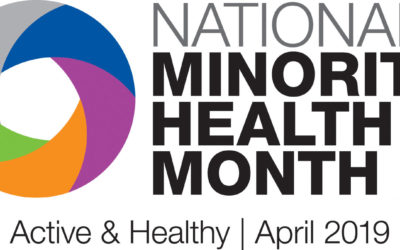The Black Women’s Agenda Inc. Applauds the U.S. Supreme Court Affordable Care Act Decision
The Black Women’s Agenda Inc. applauds the recent U.S. Supreme Court Affordable Care Act decision. On June 25, 2015, the United States Supreme Court ruled that consumer subsidies can continue flowing through all of the Affordable Care Act’s health insurance marketplaces, effectively wiping away any further threat to the landmark law. In King v. Burwell, the Court held that the Affordable Care Act authorizes tax credits for insurance purchased through the federal insurance marketplace, as well as on state-operated insurance exchanges. The case turned on a single word in the 2,000-plus-page statute, in a clause authorizing the tax credits for policies purchased on an exchange established “by” the state. It has been reported that only 13 states and the District of Columbia currently run their own exchanges.
Chief Justice Roberts delivered the majority opinion, in which Justices Kennedy, Ginsburg, Breyer, Sotomayor and Kagan joined. Justice Scalia filed a dissenting opinion in which Justices Thomas and Alito joined. The Court held that the words must be read in context, and the overall context of the law is clear that the tax credits were intended to be offered countrywide. Challengers had argued that the tax credit subsidies could only be provided in states that have established their own marketplace exchanges. The Rand Corporation estimated that 70 percent of the 6.4 million people who receive tax credit would have had their coverage dropped.
The Court interpreted the ACA as making tax credits available for insurance purchased on any Exchange created under the Act. The Court reasoned that: “those credits are necessary for the Federal Exchanges to function like their State Exchange counterparts, and to avoid the type of calamitous result that Congress plainly meant to avoid”. The Court concluded that: “Congress passed the Affordable Care Act to improve health insurance markets, not to destroy them”. The Court ruling keeps intact the subsidies in as many as 37 states that depend on the federal insurance marketplace. This landmark 6-3 decision is significant to millions of African American women and their families that BWA represents who now have secure access to health insurance.
One of the BWA’s public policy priorities is to ensure that health care is accessible and affordable for African American women and their families. The Affordable Care Act has made health insurance more affordable and available for millions of Americans. Ten million previously uninsured individuals now get coverage through the marketplaces created by the law. In the last two years, another 11 million are now enrolled in Medicaid in states that have expanded their Medicaid programs.
The Act addresses significant health care disparities affecting African Americans. While African Americans suffer from several illnesses at higher rates than non-Hispanic white Americans, they are 55 percent more likely to be uninsured. In 2013, the proportion of uninsured African Americans was 17 percent. (See Affordable Care Act and African Americans at hhs.gov/healthcare). Now millions of African American women and their families are benefitting from the coverages and protections provided by the Act. An estimated 5.1 million African American women with private health insurance now have guaranteed access to women’s preventive services, including mammograms and prenatal screenings without coinsurance or deductible requirements. Nearly 8 million African Americans with a pre-existing condition can no longer be denied coverage because the Act prohibits insurers from denying coverage based on a preexisting condition.
For the second time, the Supreme Court has ruled that the Affordable Care Act is the law of the land. President Obama stated: “In America, health care is not a privilege for a few but a right for all”, and that the Affordable Care Act is here to stay. The President’s health care legacy is now firmly secured.
July 14, 2015
Black Women’s Agenda, Inc.
OTHER NEWS
April Is National Minority Health Month
This April, join The Black Women’s Agenda, Inc. in celebrating National Minority Health Month. This year, the U.S. Department of Health and Human Services Office of Minority Health (OMH) will join partners in raising awareness about the important role an active lifestyle plays in keeping us healthy. Their theme for the 2019 observance is Active & Healthy, which will “allow OMH and minority health advocates throughout the nation to emphasize the health benefits of incorporating even small amounts of moderate-to-vigorous physical activity into our schedules.
Black Women Focus on Aging Mastery
The Black Women’s Agenda recently hosted a summit themed, “I Am the Change: Living Your Best Life at Every Age,” at Morgan State University in Baltimore, MD. Sponsored by AARP and featuring leading experts in the fields of health, education, and economic security, the event focused on the importance of health and wellness in the aging process.
“Too often black women are focused on everyone and everything except themselves,” said panel moderator Dr. Rockeymoore Cummings. “Our concern for and work on behalf of our families and communities competes with our ability to implement self-care strategies that support our physical, emotional, spiritual, and socioeconomic wellbeing.”
March is Women’s History Month
This March, join The Black Women’s Agenda, Inc. as we celebrate Women’s History Month. Congress first declared March as Women’s History month in 1987. Since then, every year there’s a Presidential Proclamation to announce the month and to honor women who have made a notable impact in history.
According to the National Women’s History Alliance, “In February 1980, President Carter issued the first Presidential Proclamation declaring the Week of March 8th 1980 as National Women’s History Week. In the same year, Representative Barbara Mikulski, who at the time was in the House of Representatives, and Senator Orrin Hatch co-sponsored a Congressional Resolution for National Women’s History Week 1981. This co-sponsorship demonstrated the wide-ranging political support for recognizing, honoring, and celebrating the achievements of American women.
© 2025 The Black Women’s Agenda, Inc. All Rights Reserved. Privacy Policy








